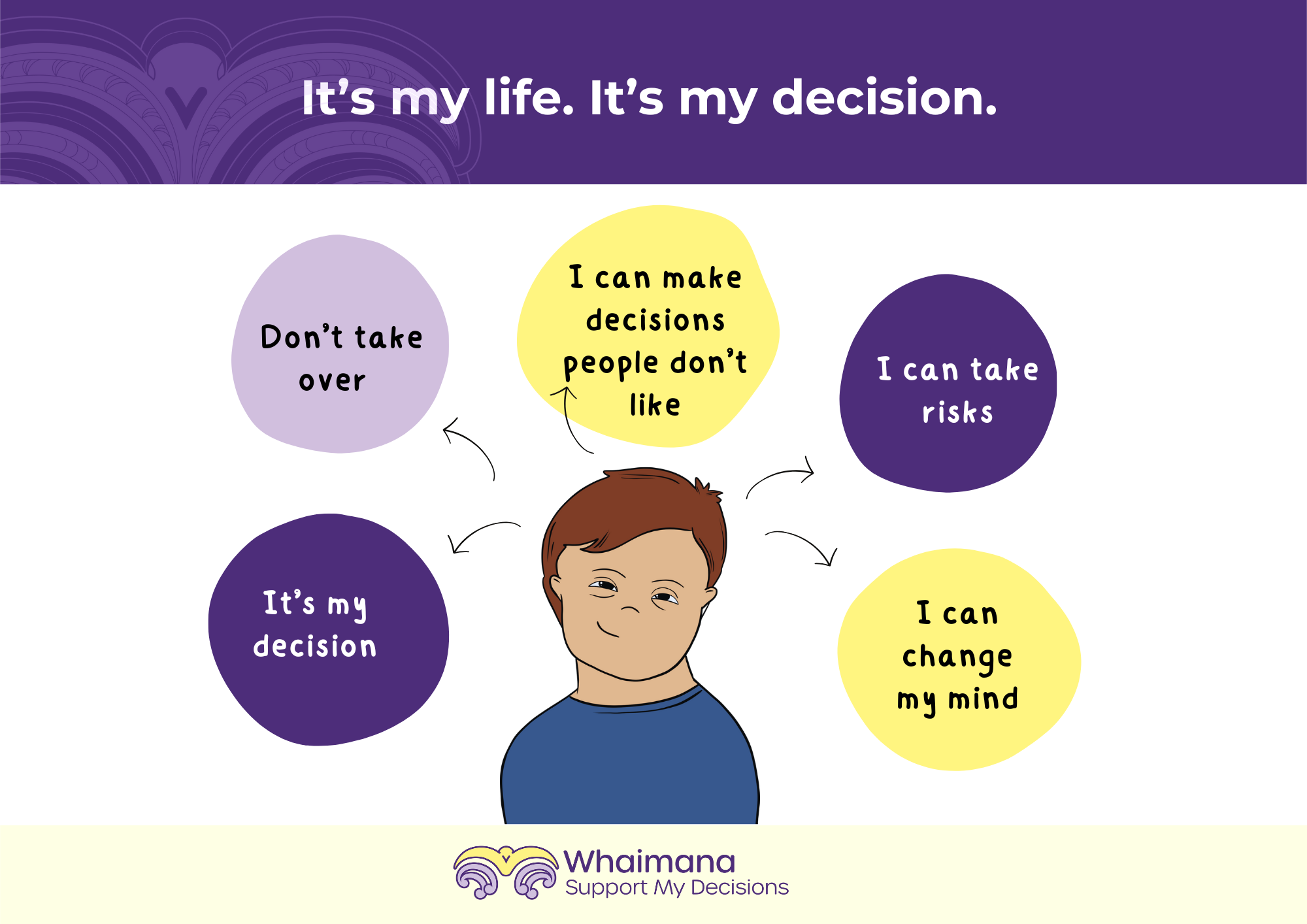Work in Progress! We are building a new website about supported decision-making. We haven't finished checking the content yet. We want to make sure everything is clear and correct before we share it. Please come back soon to see the finished website.
Always remember whose life it is
Supported decision-making helps people to make their own decisions about their own lives. It’s not about what the supporter thinks is best.
It’s not about what the supporter thinks is best
Sometimes, supporters take over and make decisions based on what they think is in the person’s best interest.

Fred's Story
Fred's wife died recently. His children noticed he seemed quieter than usual at a family dinner. The children were worried.
In their Facebook group chat, the children decided Fred needed more company. They didn’t think it was a good idea that Fred’s favourite hobby was going fishing on his own.
They signed Fred up for Lawn Bowls. They arranged for a grandson to move in to keep Fred company
The children made these choices without asking Fred what he wanted. They thought they were helping. But they were:
- Ignoring Fred's wishes
- Deciding what was best for him
- Changing his life without his input
- Removing his control
Supported decision-making would help Fred to make his own decisions.
The decision-maker is in charge
In supported decision-making, when the person makes a decision:
- They are in control
- They choose what they want
- Their life, their choice
A good decision-supporter:
- Helps, not controls
- Doesn't push their own ideas
- Listens to the person’s feelings
- Accepts the person can take risks they understand. Safety matters, but control belongs to the person.
- Respects the person’s decision, even if the supporter doesn’t agree with it
- Realises that people can change their mind. Sometimes we need to try things to figure out what we really want or need
Alex's story
With the support of his family Alex decided to go flatting in a new suburb. After a while, Alex wanted to move.
Alex says that deciding where to live is a big decision and is not something people do every day. Alex talked to his Mum and Dad and family and they helped support his decision-making.
He decided to move back to his old suburb. He decided to live in a house with his sister and his niece. Alex enjoys living with them. He enjoys walking to the shops and the local area.
Checking for conflicts
Supporters must be honest with themselves
- Do they have personal reasons for wanting a certain choice?
- Would the decision benefit them?
- Are they truly supporting the person's wishes?
It is not okay for a supporter to influence decisions so that they benefit themselves. To help avoid and spot undue influence:
- Always ask: "Whose choice is this?"
- Include several supporters
- Step aside as the decision-supporter if there is a conflict. Tell other supporters about this conflict.
- Keep communication clear
- Respect the person's right to choose
- Help the person to stay connected with their community
Find out more
If you are worried about any form of abuse, you can ring a free helpline:
- Elder abuse helpline 0800 32 668 65
- Adults at risk Personal Advocacy and Safeguarding Adults Trust (PASAT) 0800 728 70878
- Are You Ok? Family violence helpline 0800 456 450
- Oranga Tamariki (Ministry for Children) 0508 326 459
You can read more about Safeguarding on this page on our website
